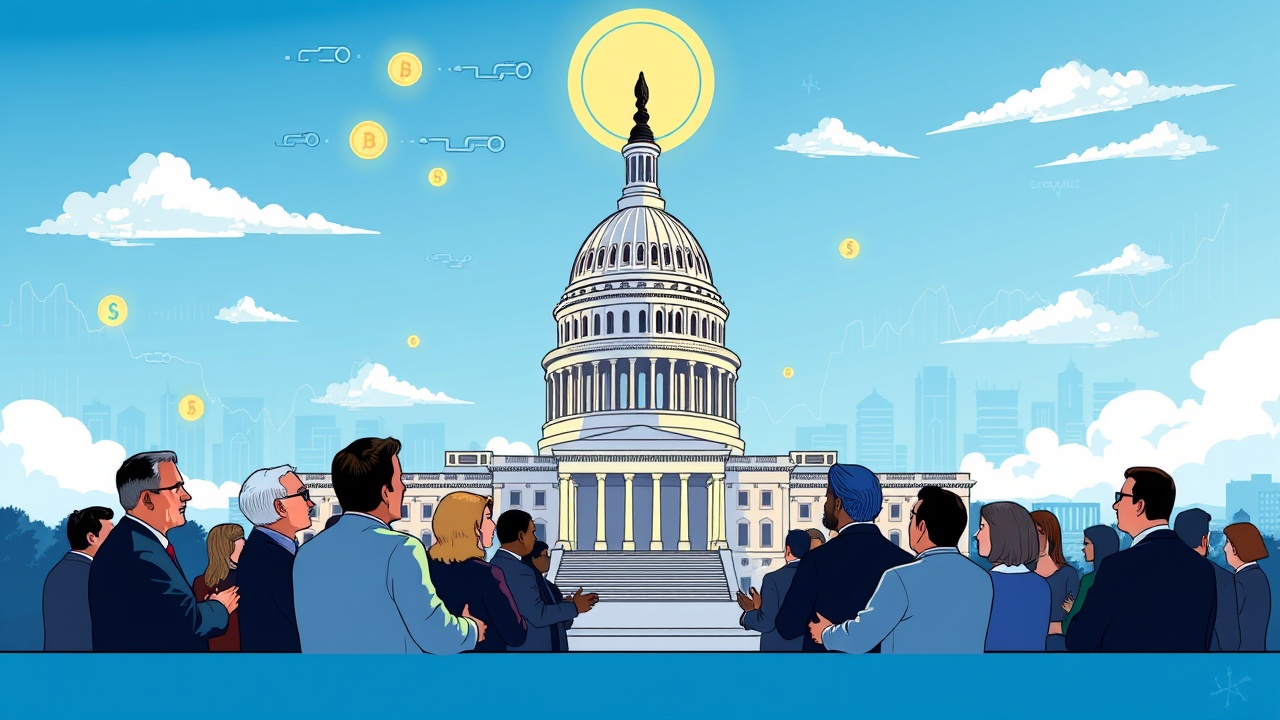Introduction
In a bid to create an effective regulatory framework for the cryptocurrency market, twelve senators from the Democratic party have reached out to their Republican counterparts, advocating for a cooperative approach to legislation. On September 19, Senator Ruben Gallego, along with a group that includes prominent figures such as Mark Warner, Kirsten Gillibrand, and Cory Booker, expressed their desire for bipartisan collaboration in a statement aimed at addressing the significant regulatory gaps currently affecting businesses and investors in the digital asset space.
Bipartisan Collaboration
The senators specifically called for the establishment of a process for joint authorship of the legislation, which is a customary practice for bills of considerable scope. They underscored the urgency of the situation, stressing the importance of a Republican agreement to expedite progress on comprehensive regulations. In their statement, they said,
“We hope our Republican colleagues will agree to a bipartisan authorship process, as is the norm for legislation of this scale. Given our shared interest in moving forward quickly on this issue, we hope they will agree to reasonable requests to allow for true collaboration.”
Foundational Pillars of the Proposal
Central to the Democrats’ proposal are seven foundational pillars designed to enhance regulatory oversight and restore investor confidence in the digital asset market. A key highlight of the framework is the suggestion that the Commodity Futures Trading Commission (CFTC) should be granted full authority over spot markets for digital commodities that are not classified as securities. This move aims to eliminate existing ambiguities that currently exist between the CFTC and the Securities and Exchange Commission (SEC).
To bolster the CFTC’s regulatory scope, the proposed legislation calls for new registration and enforcement capabilities specifically for cryptocurrency trading platforms. Mandatory consumer protection disclosures would also be part of this initiative. Additionally, the CFTC and SEC would be allocated increased funding and expanded powers to oversee custody protocols, margin requirements, and address conflicts of interest within the industry. A major focus of the legislation involves establishing uniform regulations across crypto exchanges, akin to those used for traditional securities markets.
Electoral Integrity and Anti-Money Laundering
Furthermore, the electoral integrity of public officials is addressed in the framework. It draws attention to former President Donald Trump’s connections with cryptocurrency ventures, aiming to prohibit elected officials and their families from profiting or engaging in token issuance while in office. The proposal includes mandates for the disclosure of all digital asset holdings by these officials.
The proposed legislation would also broaden anti-money laundering regulations to encompass all digital asset intermediaries, including foreign entities catering to U.S. customers, thereby necessitating registration with the Financial Crimes Enforcement Network (FinCEN) along with compliance with sanctions. Moreover, decentralized finance (DeFi) protocols are anticipated to endure particular scrutiny concerning potential compliance issues within the proposed regulatory model.
Stability and Compliance Requirements
The framework preserves existing GENIUS Act provisions that prevent stablecoin issuers from providing interest-bearing products and encourages regulators to devise new oversight models specifically for DeFi projects. This approach aims to ensure the stability of traditional financial markets against the disruptive potential of unregulated financial innovations. Ultimately, the legislation aims to lay down firm registration and compliance requirements across the entire digital asset landscape to deter illicit activities, applicable to both centralized and decentralized avenues.
Conclusion
Significantly, the proposal stipulates that quorum rules for SEC and CFTC rulemaking will require bipartisan participation, facilitating the quick recruitment of personnel with specialized knowledge in digital assets. The lawmakers believe that this legislative framework signifies a pivotal moment, asserting that the United States should lead in financial innovation rather than trailing behind other nations.




